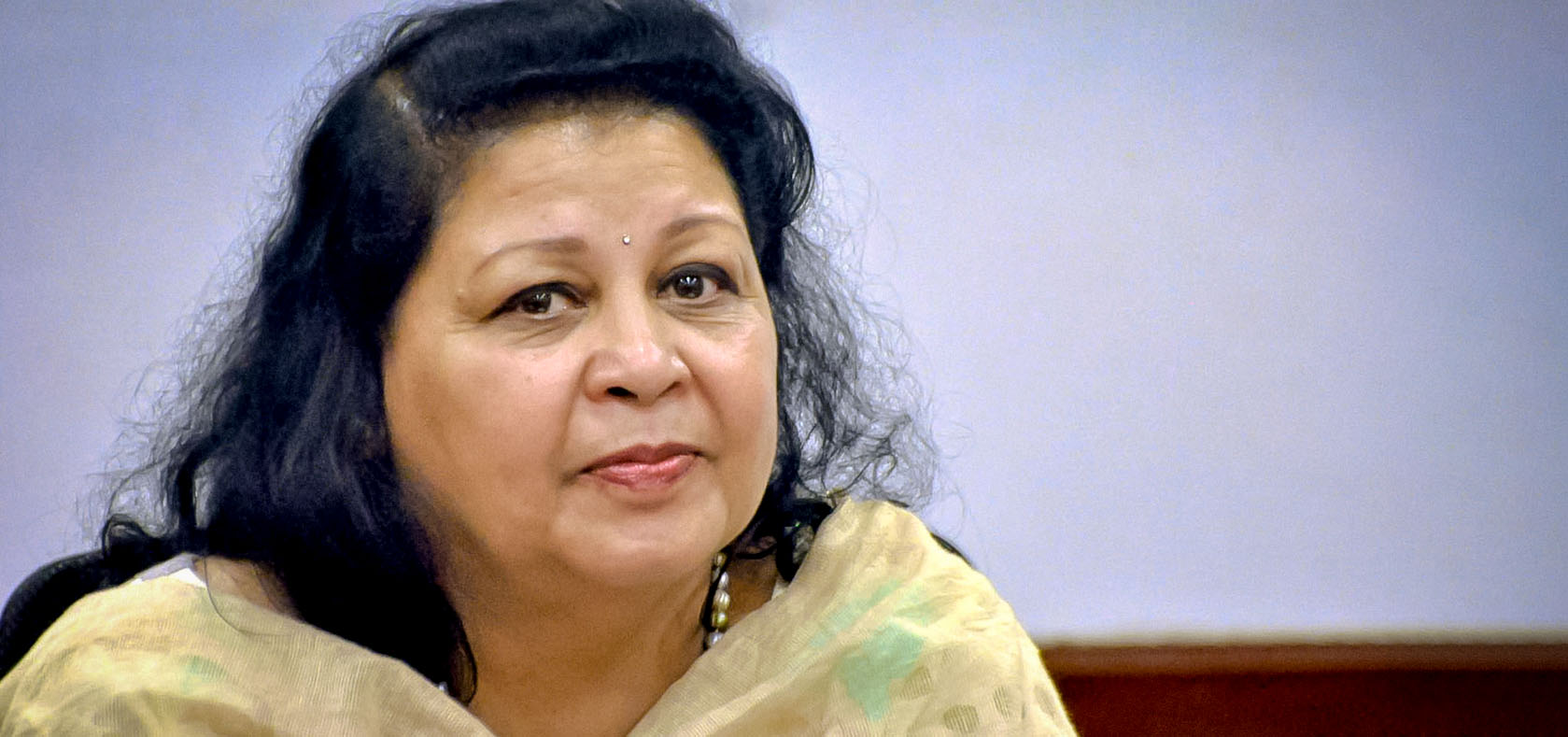Take Five: Continuous advocacy is critical for achieving gender equality in citizenship and ending discrimination against women both in law and practice
Date:
Authors: Subeksha Poudel and Subha Ghale

Lawyer Meera Dhungana has been advocating for the rights of women in Nepal for 28 years. Her writ petitions to the Supreme Court have resulted in landmark verdicts fighting discrimination over property rights, and gender-based violence including marital rape. Dhungana is currently associated with the Forum for Women, Law and Development (FWLD).
What are the key concerns about gender and citizenship in Nepal?
The constitution and the citizenship law currently limit women’s autonomy with regards to nationality and their ability to transmit citizenship through marriage and to their children. These provisions go against the Convention on the Elimination of All Forms of Discrimination Against Women, which Nepal has ratified. The Convention states in Article 9 that marriage shall not automatically affect the nationality of the wife (paragraph 1) and women shall have equal rights to men with respect to the nationality of their children (paragraph 2).
While Nepali men can provide citizenship by descent to their children, even with a foreign spouse, a Nepali mother can do so only if she declares that the father could not be traced or identified. This infringes on women’s right to privacy and is extremely discriminatory, as the father is under no such obligation to declare who the mother is. Furthermore, declaring a father to be unknown carries overwhelming stigma. This puts in a vulnerable position all women who give birth out of wedlock or rape, or whose partners are unknown, estranged, or who have disowned them or even simply refused to help their children obtain citizenship. The pressure has even caused many women to take their own lives.
Regarding naturalization through marriage, the foreign spouse of a Nepali man can immediately acquire citizenship under the Nepal Citizenship Act 2006, but there is no provision to confer citizenship to the foreign spouse of a Nepali woman.
The citizenship law also discriminates against gender and sexual minorities. LGBTIQ+ persons need a doctor’s recommendation to mark “other” in the sex column. This in effect violates their right to privacy.
What are the impacts in practice on women and others at the margins?
Around 6.3 million Nepalis lack citizenship certificates,[1] with a higher proportion among women and marginalized communities. When a person is without citizenship certificates, this can put them at the risk of being stateless. In addition, in Nepal, the citizen certificate is required for accessing most basic services such as opening bank accounts, owning property, or even buying a mobile sim card. Without citizenship documents it is not possible to pursue higher education or formal employment or access any kind of state benefits and opportunities. They also cannot form or join a legal body such as a union to fight against inequalities, including the very inequalities caused by these provisions around documentation.
Sometimes these restrictions are used by others in society to control those who are already vulnerable. The husband and or in-laws of married women sometimes resist supporting them to get citizenships as they do not want to enable the wife’s legitimate claim over her husband’s property if they separate or she is widowed. And the families of LGBTIQ+ people sometimes restrict their access to documentation to undermine their legitimacy, and sometimes even distance them from the family.
What role have Civil Society Organizations (CSOs) played in advocating for these issues?
The CSOs are most aware about the struggles of women and sexual minorities. They have played a strong role in highlighting biases in Nepal's citizenship law by shedding light on such cases. In response, we as lawyers, have strategically advocated the issues in courts. In fact, many cases where children have secured citizenship via their Nepali mothers were cases that we advocated in court after the CSOs drew attention to those cases. This role of CSOs has been critical in advancing gender equal citizenship in Nepal as the problem is not only with the law but also the patriarchal mindset of the officials who refuse to implement the law.
What is the status of the citizenship ordinance that was issued recently?
The Ordinance for the Amendment of the Nepal Citizenship Act of 2006 was issued on 23rd May 2021. However, on 10th June 2021 the Supreme Court issued an interim order to halt the implementation of the citizenship. The Supreme Court stated that the citizenship granted based on the Ordinance could raise questions regarding the validity and result in complexity if the Ordinance is not subsequently endorsed by the parliament.
Going forward, what kind of efforts are required to ensure gender equality in citizenship?
Continuous advocacy by the public and civil society organizations is critical for achieving gender equality regarding legal identity and citizenship and ending discrimination against women both in law and practice.
UN Women in Nepal supported FWLD to provide legal counselling to survivors of gender-based violence through free helplines and legal services in response to COVID-19 pandemic from September 2020 to May 2021. As a result, 525 women received legal counseling, and 118 women received additional legal services such as filing the First Information Report at the police station, referral, and court representation.
[1] Forum for Women, Law and Development (FWLD), ACQUISITION OF CITIZENSHIP CERTIFICATE IN NEPAL: ESTIMATION AND PROJECTION (2015), Kathmandu. Pp. 12 & 19. Available at: http://fwld.org/publications/acquisition-citizenship-certificate-nepal-estimation-projection